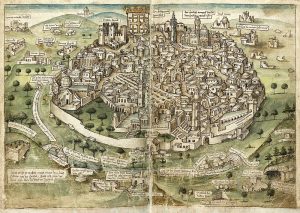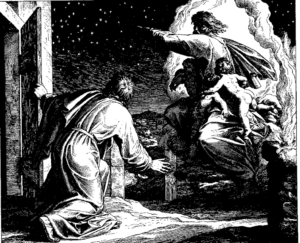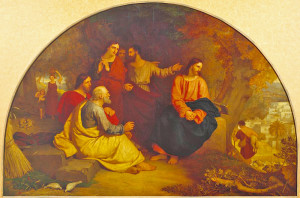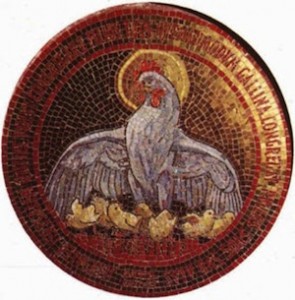Thoughts on Sunday’s Lessons for March 16, 2025 (Lent 2C)
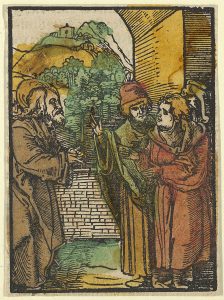
Christ and the Pharisees, from Das Plenarium (1517), hand-colored woodcut by Hans Leonhard Schäufelein (1480-1540). The Metropolitan Museum of Art, New York City. (Click image to enlarge.)
First Reading: Genesis 15:1-12, 17-18
Even in times of darkness and fear, hold on to hope and trust in God: This optimistic idea illuminates Sunday’s readings. In Sunday’s first reading, Abram is worried because he and his wife Sarai remain childless in old age. Will they have to adopt a slave child to receive the inheritance that God has promised? But God guides Abram through a dark and terrifying night and, in the new day, assures him that he and Sarai – who we will know as Abraham and Sarah – will begin a family that will inherit the promised land; a family as countless as the stars.
Psalm: Psalm 27
Psalm 27 resonates with the Genesis account of God’s covenant with Abraham: Even when we feel under attack, beset with dangers and real-life fears, we can place our confidence in God and ask for God’s protection. We sing of our trust in God, our light and salvation, whose strength is so great that nothing can stand against it. Yes, bad things sometimes do happen to good people. That is the way of our lives. But we ask God’s to show us the way and lead us on a level path, and we trust that God will be with us both in bad times and good.
Second Reading: Philippians 3:17-4:1
The people of the church in Philippi in northern Greece had endured much to embrace the Christian way. They wrestled with fear as they faced persecution by their enemies. But Paul – himself writing from prison in Rome – reassures them pastorally in words that might remind us of the Psalmist’s wisdom: Look to God, through Christ, for our salvation. Stand firm in our faith and find meaning in our lives by making every effort to live as Christ would have us live. Christ is the one who will transform us.
Gospel: Luke 13:31-35
Several friendly Pharisees warn Jesus that King Herod wants to kill him, and urge him to protect himself. But Jesus, calling Herod “that fox,” won’t change his chosen course, even if it will lead to death in the “city that kills the prophets.” But then this dark and foreboding passage turns comforting as Jesus describes himself as a mother hen protecting her brood under her wings. This nurturing, feminine image invites us to reflect on Jesus as a source of gentle motherly love, expanding our vision of a Christ for all humankind.

